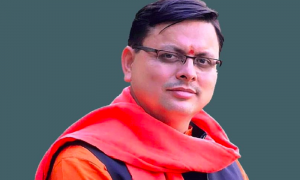The Tamil Nadu government told the Supreme Court earlier this week that social media profiles of users should be linked with their Aadhaar numbers to keep a check on the spread of fake news, pornographic and anti-national content, among other things.
Meanwhile, social media platforms like Facebook have been fighting this move to link user profiles with Aadhaar as they believe it would violate the users’ privacy policy.
The Supreme Court said on August 20, 2019, that there is a need to find a balance between the right to online privacy and the right of the state to trace the origins of hateful messages and fake news. On August 21, the Madras High Court dismissed the original prayer to link Aadhaar to social media accounts as it violated the Supreme Court’s judgment on Aadhaar.
Here’s a quick 10-point explainer of what has been going on.
— Attorney General KK Venugopal appeared for the Tamil Nadu government in the Supreme Court to stress the need for Aadhaar-social media linking to keep a check on the spread of fake news and anti-national content on platforms like Facebook and Facebook-owned services like WhatsApp.
— The Tamil Nadu government is seeking Aadhaar-social media linking after two private citizens, Antony Clement Rubin and Janani Krishnamurthy, filed PILs for authentication of identity. The petitioners sought Aadhaar linking to social media profiles due to the rise of hate content, fake news and cyberbullying.
— The Tamil Nadu government is in agreement that Aadhaar-social media linking is needed to keep a check on the spread of fake news, something that has plagued WhatsApp in recent years. Venugopal also referred to the Blue Whale game, the online suicide challenge that has reportedly claimed hundreds of deaths in countries like Russia and India.
— Venugopal said that in the case of the Blue Whale challenge, the government found it hard to trace the originator of the online content.
— Facebook, however, has been resisting the move to link user profile with Aadhaar as it feels this would violate the privacy policy of the user.
— Facebook has also defended itself, saying that it cannot share the 12-digit Aadhaar number on WhatsApp as it is end-to-end encrypted, even for Facebook.
— Facebook is also looking to transfer the petitions on the Aadhaar-social media linking to the Supreme Court as it feels it would be in the interest of justice. There are conflicting opinions about this at different High Courts.
— The way it stands right now is that some High Courts are in favour of Aadhaar-social media linking while some aren’t, which is why Senior advocates Mukul Rohatgi and Kapil Sibal who are representing social media platforms have moved the Supreme Court to make a final decision that would apply uniformly across India.
— If the apex court rules in favour of Aadhaar linking with social media accounts it would result in users’ messages and posts being traceable. This would end private communications and experts believe this could also allow the government to use social media platforms as surveillance tools.
— On Wednesday, August 21, the Madras High Court reiterated its stand that Aadhaar cannot be used to authenticate social media accounts. It has dismissed the plea made by the PIL petitioners, but given that the Supreme Court is hearing Facebook’s transfer petition, the Madras HC has adjourned the hearing on WhatsApp traceability case until September 19, Medianama reports.




































